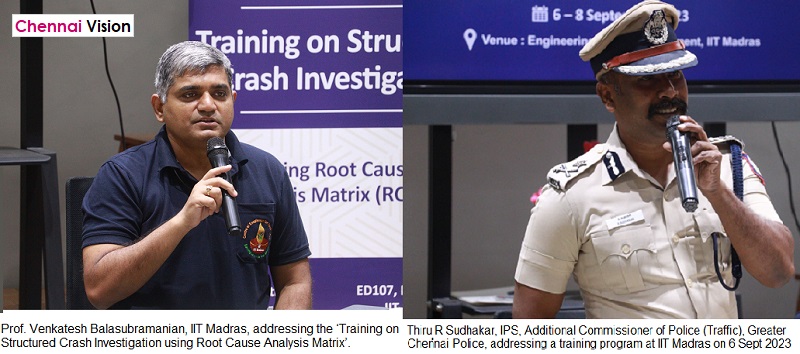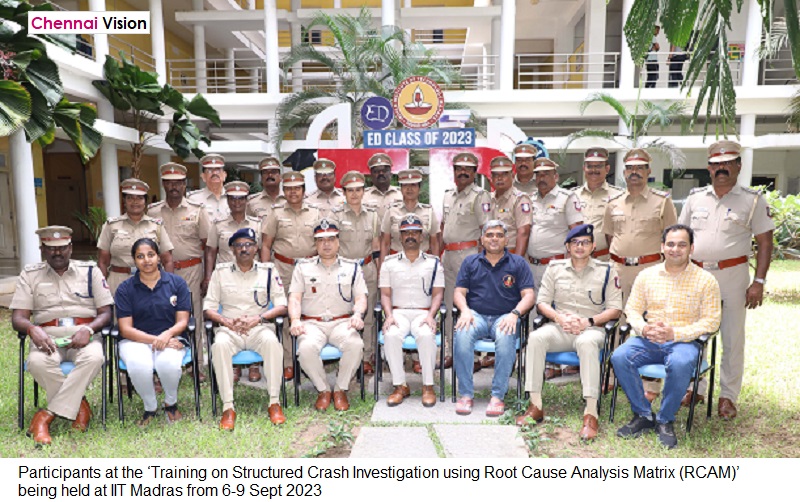IIT Madras’ Centre of Excellence for Road Safety conducts Training on Scientific Crash Investigation for Greater Chennai Traffic Police
The workshop covered principles of design thinking, creative problem-solving and structured crash investigation using a Root Cause Analysis Matrix (RCAM) designed by CoERS
Indian Institute of Technology Madras’ (IIT Madras) Centre of Excellence for Road Safety (CoERS) is conducting a programme for the Greater Chennai Traffic Police (GCTP) on ‘Training on Structured Crash Investigation using Root Cause Analysis Matrix (RCAM)’ from 6th to 9th September 2023.
The programme seeks to impart design thinking skills to the investigation officer (IO) to adopt a human factors or empathy-based approach in identifying the root causes of an accident. This comprehensive systems approach to scientific enforcement powers them to communicate their hypothesis effectively.
Conducted in two parts, the workshop consists of three-day hands-on training session at IIT Madras followed by application of the learnings on field by the IOs in live cases and presenting their findings after a two-week period. This workshop aims to equip the IO of the traffic police with the practical skills required for on-field data collection, collation, and analysis in a structured format.
Explaining the need for the programme, Thiru R Sudhakar, IPS, Additional Commissioner of Police (Traffic), Greater Chennai Police, said, “This course will have immense value for the police. We sometimes miss the human aspect when investigating traffic accidents and this will help us understand that by instituting a mind-set change in how we conduct investigations. With a change in approach of our investigative methods, we hope to achieve better closure rate which in turn will help us in bringing out more meaningful interventions to prevent future accidents from occurring.”
The key outcomes targeted from this workshop include:
Ø Hands-on training on using the root cause analysis matrix (RCAM) methodology for performing a structure crash investigation.
Ø Knowledge sharing of best practices on design thinking approach to creative problem solving for better understanding of various human factors leading to road crashes.
Ø Encourage use of data-driven and scientific strategies to develop targeted interventions.
Ø Improve the capacity of the investigation officers to perform death audits.
Elaborating on this program, Prof. Venkatesh Balasubramanian, Head of CoERS and RBG Labs, Department of Engineering Design, IIT Madras, said, “By applying design thinking principles in a co-creative environment, we hope to introduce the investigating officers to a more result-oriented approach to crash investigations. Towards this a structured framework called RCAM based on ‘Man, Machine (Vehicle), Method (of driving) and Environment (3M&E)’ model was developed by CoERS. This is a human-centric model towards arriving at a root cause.”
Prof. Venkatesh Balasubramanian added, “By following a structured analysis, data-driven interventions can be formulated to prevent repetition and overlapping of activities. Often, the human element is forgotten when investigating a crash. Through this course, we are trying to initiate a mind-set change where investigating officers will have more empathy.”

